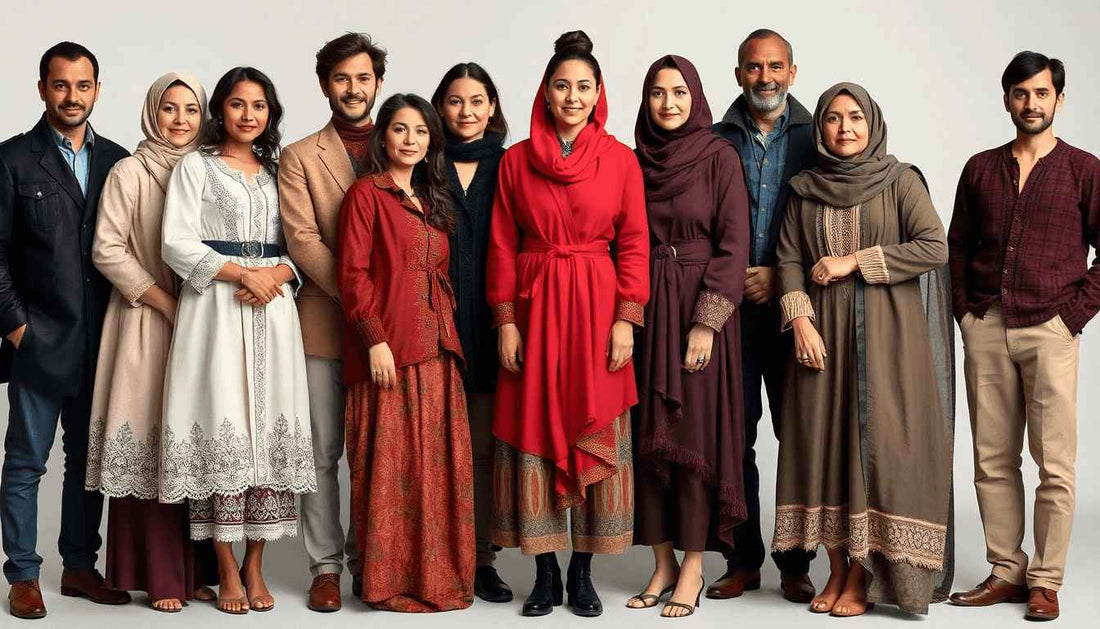
Why Do We Wear Clothes? Exploring the Practical, Social, and Psychological Reasons
Share
The age-old question that has puzzled philosophers, scientists, and fashionistas alike: Why do we wear clothes? Is it purely practical, or is there a deeper, more complex answer hiding in the folds of our wardrobe? Let’s dive in and unravel this fashionable mystery, stitch by stitch.
The Obvious Reasons We Wear Clothes
First, let’s address the elephant in the room (hopefully, it’s wearing pants): the practical reasons.
Protection from the elements: Ever tried braving a blizzard in your birthday suit? Exactly. Clothes keep us cozy in winter, cool in summer, and safe from the occasional rogue mosquito.
Modesty and social norms: As much as we’d like to believe otherwise, society frowns upon turning up to the grocery store au naturel. Clothes save us from embarrassment—and some hefty fines.
Utility: Pockets! Need I say more? Where else would we stash our phones, snacks, and spare change?
Why Clothes Are More Than Just Practicality
But hold on—we’re not just wearing clothes to avoid hypothermia. Humans are complex creatures, and our sartorial choices are no exception.
Self-expression: Clothes are like walking billboards for our personality. Whether it’s a graphic tee declaring your undying love for cats or a tailored suit that screams, “I mean business,” our outfits speak volumes.
Status symbols: Let’s be honest: sometimes, it’s not just about covering up. Wearing a designer label can make you feel like royalty, even if you’re just microwaving leftovers.
Mood boosters: Ever put on a killer outfit and suddenly feel like you can conquer the world? That’s not just the caffeine talking—your clothes are giving you a psychological pep talk.
The Evolution of Why We Wear Clothes
Rewind a few millennia, and our ancestors weren’t worried about matching their furs with their footwear. Back then, wearing clothes was about survival, not style.
Natural insulation: Without thick fur or feathers, early humans had to get creative. Enter animal hides, the original winter jacket.
Cultural evolution: Over time, our clothing evolved from function to form, reflecting traditions, beliefs, and innovations. Today, we’re spoiled with breathable fabrics and tech-savvy garments—goodbye, itchy tunics.
The Psychological Side of Dressing Up
Clothing isn’t just skin-deep—it affects how we feel and how others perceive us.
Confidence booster: Clothes can be a suit of armor for the modern world. Whether it’s a power suit or a pair of lucky socks, the right outfit can make you feel invincible.
Comfort and security: There’s a reason we call it a “security blanket.” Clothes provide a sense of safety, even in unfamiliar situations.
Imagine a World Without Clothes
Take a moment to envision it…awkward, isn’t it? From slipping on public benches (ouch) to endless sunscreen application, the logistical nightmare is enough to make us grateful for even the humblest t-shirt.
The Future of Clothing
What’s next for our wardrobes? The future looks bright (and maybe a little sci-fi):
Smart fabrics: Clothes that regulate body temperature or monitor health might be closer than we think.
Eco-friendly trends: Upcycled and biodegradable materials are taking the fashion world by storm. Goodbye, fast fashion; hello, sustainability.
Conclusion
So, why do we wear clothes? The answer is as layered as our favorite fall outfits. From practical protection to self-expression and psychological comfort, clothing plays a vital role in our lives. It’s not just fabric—it’s identity, innovation, and a touch of humor all rolled into one.
Next time you slip into your favorite jeans or cozy hoodie, give a little nod to the centuries of evolution, creativity, and practicality that brought you here. And remember—whatever your style, you’re dressed for success (or at least for snacks in those glorious pockets).

